Unleashing the Power of Coconut Water with Kefir Grains
Coconut water kefir has a delightful tropical flavor and a bounty of health benefits. This version of water kefir utilizes coconut water’s natural sweetness and mineral richness. It is delicious and packs a nutrient-dense, probiotic punch.
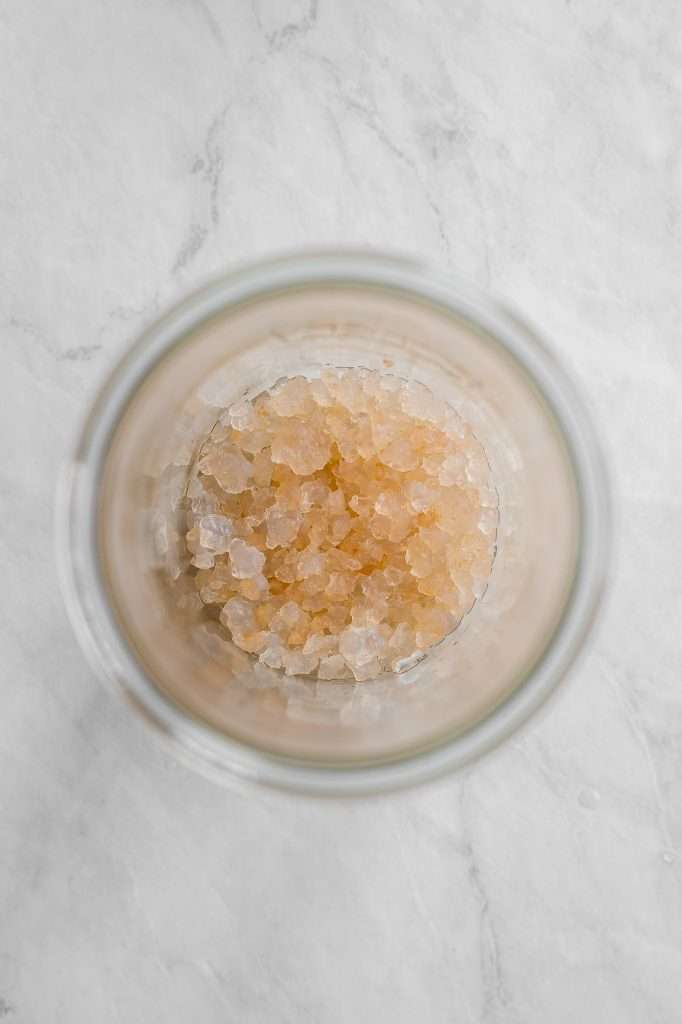
Why Coconut Water?
Coconut water’s natural composition includes fermentable sugars like fructan and sorbitol, making it an excellent base for water kefir. The beneficial microbes in the kefir grains—like Lactobacillus brevis, Lactobacillus casei, and Saccharomyces cerevisiae—consume these sugars during fermentation. This process reduces the FODMAP content, making it easier to digest, and increases the nutrients’ bioavailability, transforming it into a gut-friendly, probiotic-rich drink.

Simple Steps to Make Coconut Water Kefir
Here are all the ingredients you need to make your coconut water kefir at home with minimal ingredients:
Ingredients:
- Water kefir grains
- Water and Sugar (for primary fermentation)
- Pure, organic coconut water
Safety Note: Always verify that your fermentation bottles are designed to handle pressure. Recycled kombucha bottles are a great choice as they are made to withstand high carbonation levels.
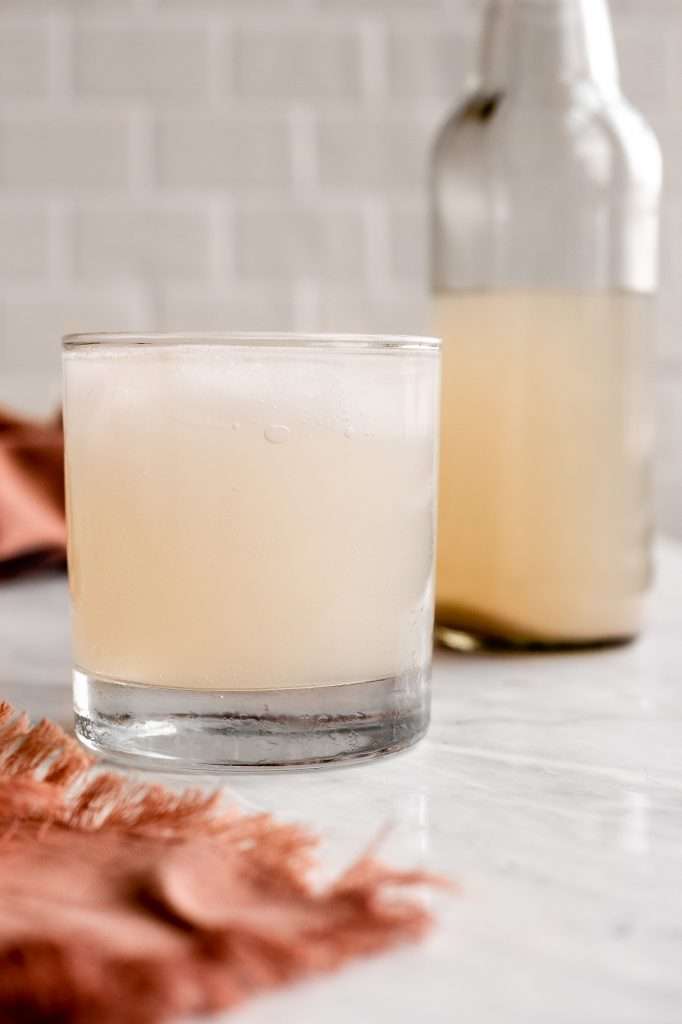
Enjoying Your Coconut Water Kefir
The result after fermentation is a sparkling, lightly sweet, tangy beverage that is excellent for hydration and gut health. Coconut water kefir can be enjoyed independently or as a base for creative probiotic cocktails. Its high mineral content makes it particularly beneficial for replenishing electrolytes and supporting adrenal health.
Things You May Need:
Print
How to Make Coconut Water Kefir
Water kefir can be secondary fermented with coconut water, which is naturally high in electrolytes, enzymes, and nutrients. When fermented, coconut water is easier to digest and contains more boiavailable vitamins and minerals.
- Prep: 30 minutes
- Total Time: 48 hours 30 minutes
Ingredients
- about 3 cups fermented sugar water from primary fermentation
- 3 cups organic coconut water
Instructions
- It is vital that you use carbonation-safe bottles for secondary fermentation. This recipe makes 6 cups, so I use three 16-ounce bottles. You can use fresh-pressed juice (see notes) or bottled pasteurized juice; both work great (ensure it’s 100% juice, no additives).
- Fill a carbonation safe bottle about 1/2 full with fermented sugar water from primary fermentation.
- Top off the bottle with the coconut water so there is about an inch of headspace left in the bottle.
- Secure the bottle lid and gently invert it a couple times to mix.
- Allow it to ferment at room temperature (70-80 degrees F) for about 24-48 hours.
- Carefully open the lid to see if it is carbonated to your liking. If it is refrigerate, if not continue to ferment for 24 more hours, carefully checking the carbonation again.
- Keep refrigerated.
Notes
- If using fresh coconut water, I suggest heating it to 145° F for a few minutes and cooling it before using it. This ensures that no wild microbes get introduced into the water kefir.
- The coconut water ratio is slightly adjustable. The best ratio for lower sugar is 3 parts fermented sugar water and 1 part coconut water. For slightly sweeter, as with this recipe, I do half fermented sugar water half coconut water.



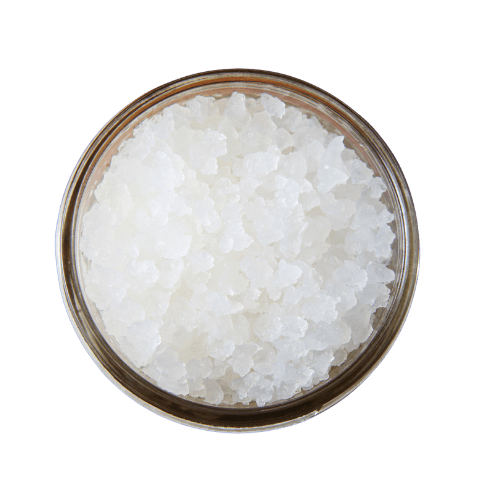
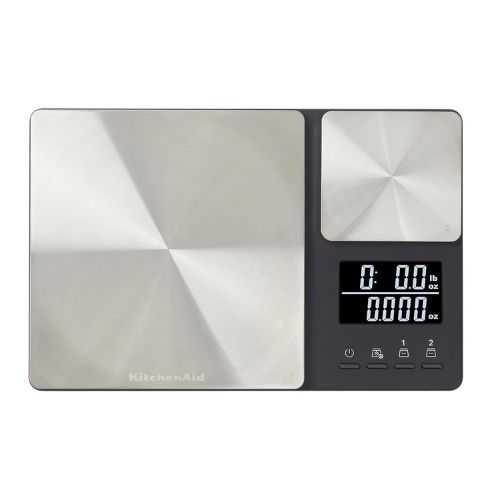
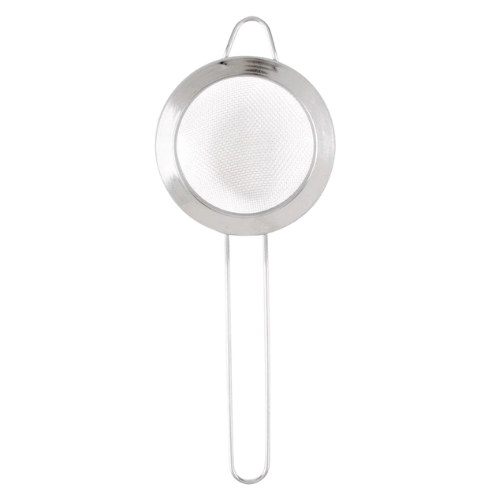
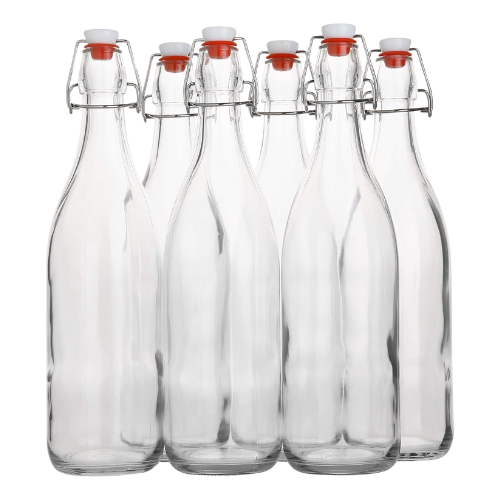
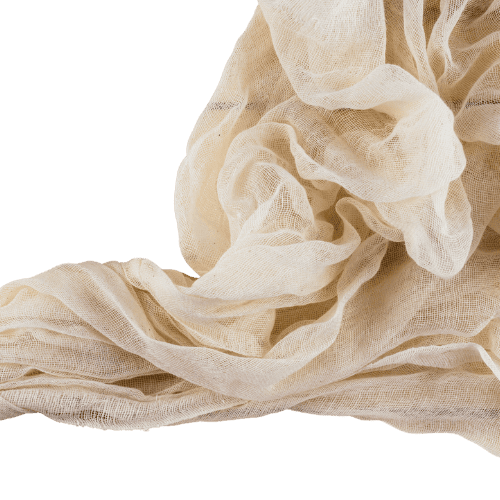
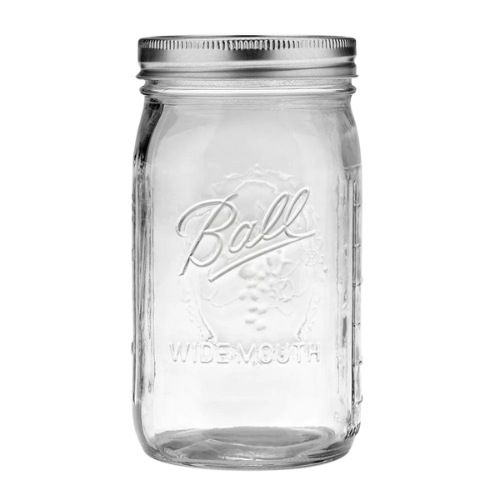


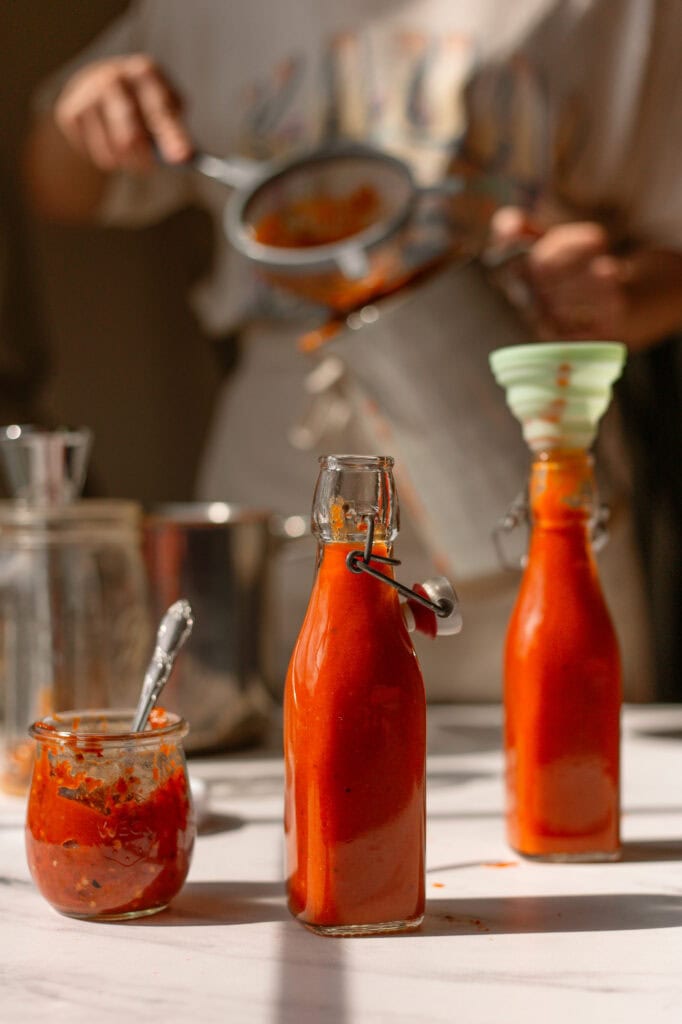





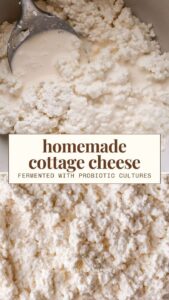
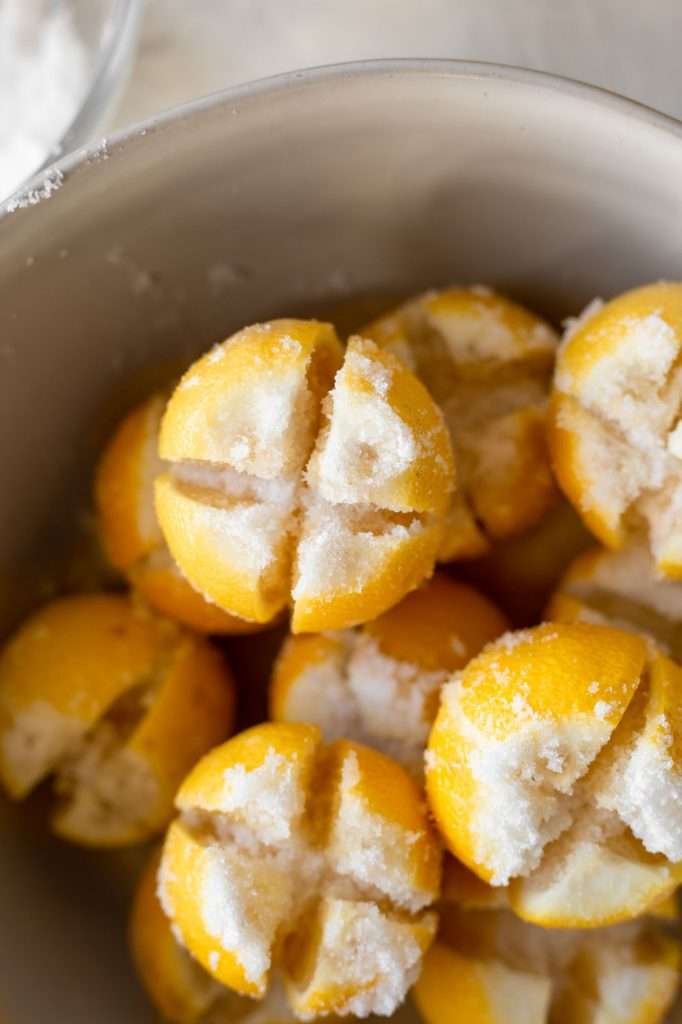
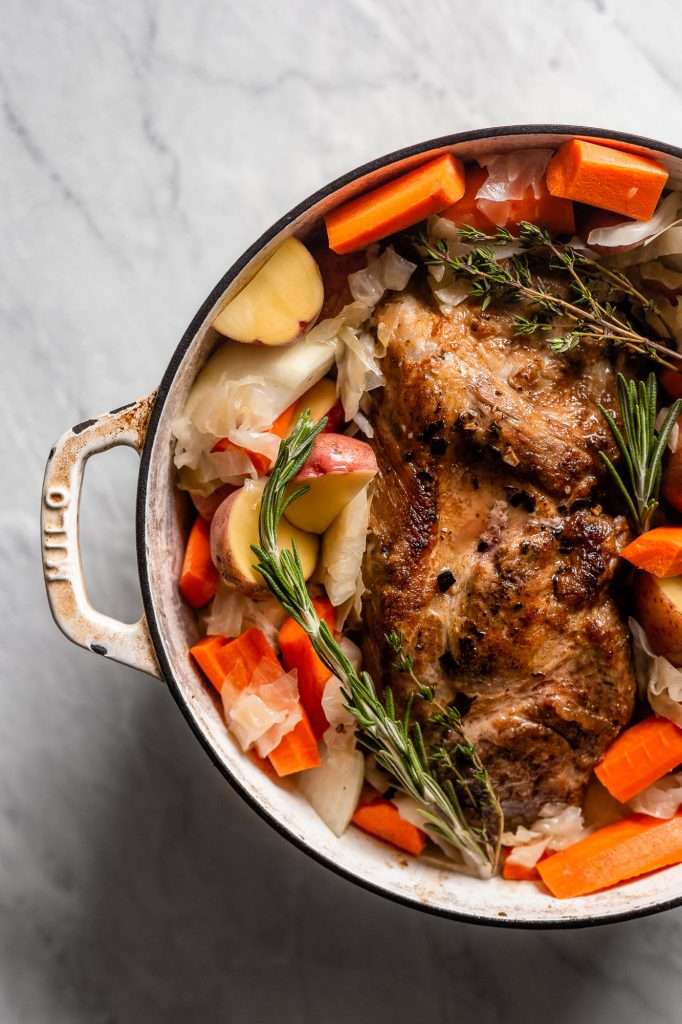
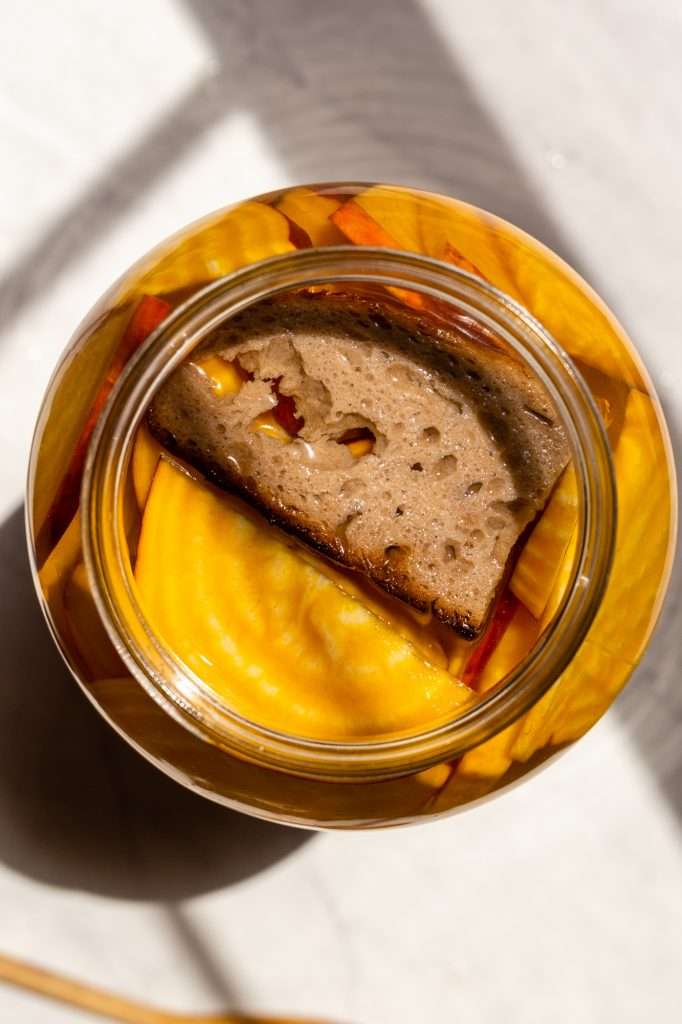
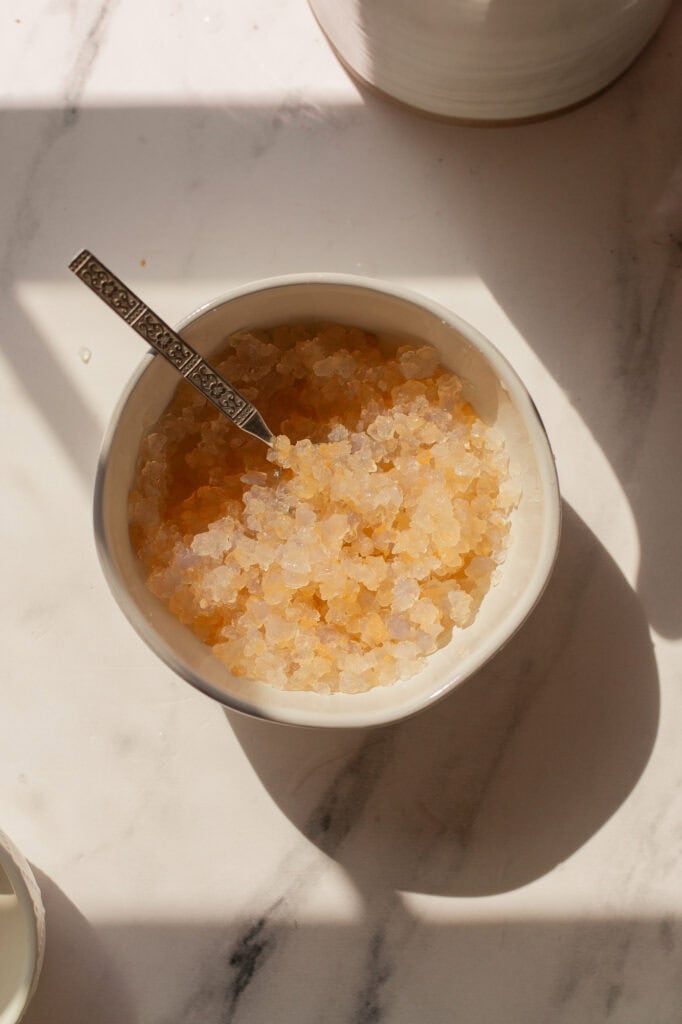
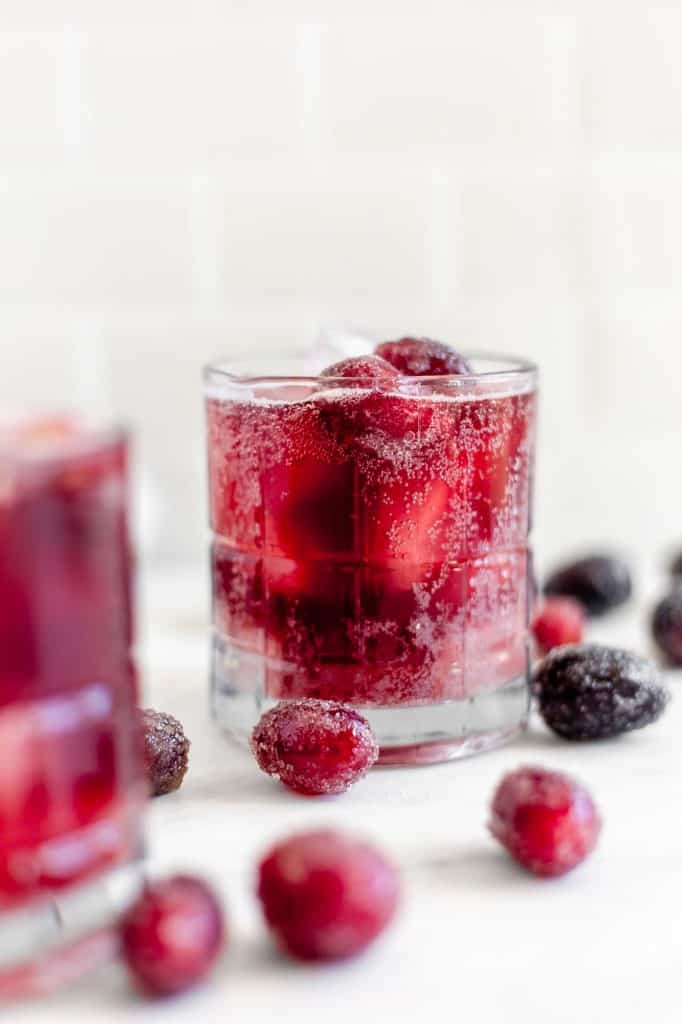



Where is the best place to get the of the water kefir grains?
This is where our grains are from:
https://www.culturesforhealth.com/buy-water-kefir-grains.html
What size bale top bottles do you use for this?
I used two 16 Ounce bottles, one for each flavor.
You mention leaving cheesecloth on the top, does a silicon fermentation lid work as well or is it best to use an open weave cloth?
No, cheesecloth works best. There needs to be good airflow into the jar.
Do you ever burp it during the second ferment? I’m so nervous about an explosion. 🙈
Sometimes I do, especially if I include whole fruit pieces in the second ferment. You can burp it before refrigerating. Just be careful, don’t open it all at once, and do it over the sink.
How long does the fermented coconut water last in the fridge?
It should last a couple of weeks. It might get fizzier the longer you store it.
I’m new to making water kefir and my last batch almost has a wine/alcohol flavor to it. It’s sour and not sweet at all anymore unlike my first batch. Is this normal? I’m really wanting to use this for my young kids and don’t want to be basically giving them alcohol if I have done something wrong 🤣
If it smells like alcohol, that usually means you added a lot of sugar. more sugar = more alcohol. Did you use my recipe here? and did you use a kitchen scale to measure the ingredients?